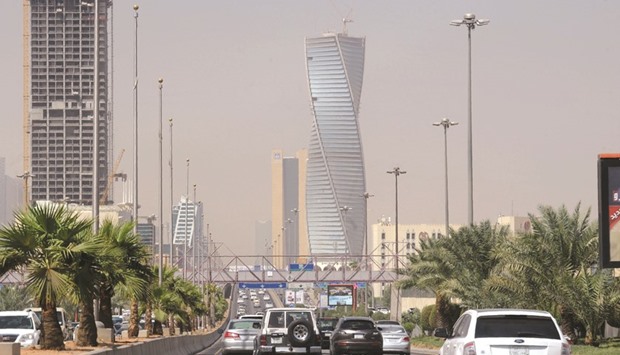Investors who bought into Saudi Arabia’s record bond sale have made a profit of $209mn in just a day.
The $17.5bn of investment-grade securities that were sold on Wednesday had a market value of about $17.71bn as of 6pm in Dubai on Thursday, according to prices compiled by Bloomberg.
The first international debt sale by the world’s biggest oil exporter received more than $60bn in bids from potential buyers, lured by coupons ranging from 2.375% to 4.5%, people familiar with the deal said earlier this week.
Investors facing more than $10tn in negative yields worldwide have turned to developing economies to increase returns, boosting demand for issues from Latin America to the Arab Gulf region.
Saudi Arabia’s sale overtook Argentina’s $16.5bn offering in April as the country grapples with a budget shortfall that reached 15% of the kingdom’s economic output.
“In this market there are not many liquid, quality credit names that offer decent yields,” Angelo Rossetto, a trader at GMSA Investments Ltd in London, who bought 10- and 30-year bonds, said in an e-mail. “When you have euro corporates coming out with negative yields or close to zero, I think its quite natural that investors jump on to the Saudi issue, especially now that the whole emerging market has become more liquid and well supported.”
Saudi Arabia’s $5.5bn of five-year notes were bid at 99.75 cents to the dollar, compared with its offer price of 99.007 cents. The 10-year bonds were at 99.70 cents versus 98.679, the 30-year securities at 99.50 cents from 98.015, according to data compiled by Bloomberg.
The five-year note was priced to yield of 2.59% at issue, compared with 2.30% for similar-maturity debt from Qatar. Saudi Arabia is rated A1 by Moody’s Investors Service, the fifth-highest investment grade and two steps below Qatar. The premium was about 40 basis points for the 10- and 30-year issues.
Saudi bonds are gaining “because investors believe that it was cheap and like the credit,” Rossetto said. “The premium over Qatar was maybe a bit too generous.”
The sale has spurred a rally across the region, especially in longer-dated securities. Since Saudi Arabia issued price guidance for its securities on Tuesday, the yield on Qatar’s 2046 bond dropped 13 basis points and rates on Bahrain’s 2044 notes fell 35 basis points, while the yield on Saudi Electricity Co’s 2044 bonds have tumbled 45 basis points, according to data compiled by Bloomberg.
Countries across the oil-rich region have tapped international markets at a record pace to shore up their finances. Qatar raised $9bn in May, the area’s previous record, Abu Dhabi issued $5bn in April, Oman $4.5bn and Bahrain $2.6bn, helping sales from the region surpass the previous high of $43.6bn in 2012.
Increased issues will help companies in Saudi Arabia wean themselves off bank loans, their traditional source of finance. It will also help reduce strain on the banking system, as oil’s plunge has sapped liquidity, pushing interbank interest rates to their highest in seven years. The country has cut wages, subsidies and spending to compensate for lower revenue.
The new bonds will “help develop the kingdom’s debt markets by introducing a more sophisticated type of investor,” Mohieddine Kronfol, the chief investment officer of global sukuk and Mena fixed income at Franklin Templeton in Dubai, said in an e-mail. “There are also positive ripple effects for GCC fixed income.”

Saudi commuters drive down a main street in the capital Riyadh on Tuesday. The $17.5bn of investment-grade securities that were sold on Wednesday had a market value of about $17.71bn as of 6pm in Dubai on Thursday, according to prices compiled by Bloomberg.
